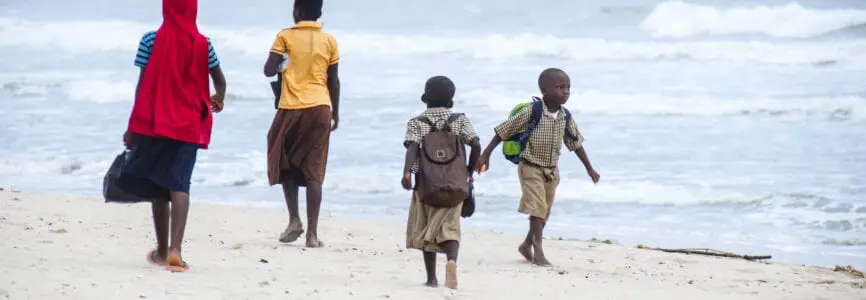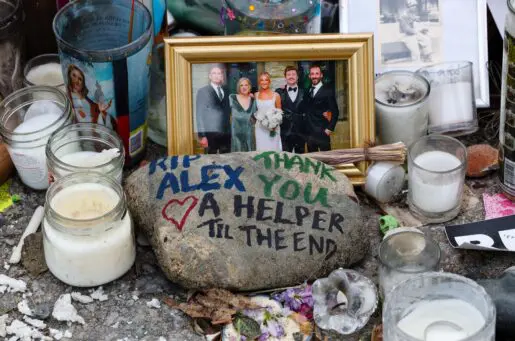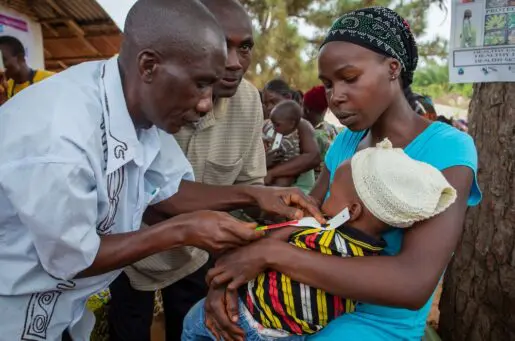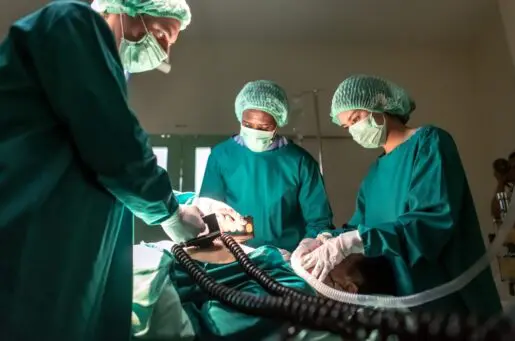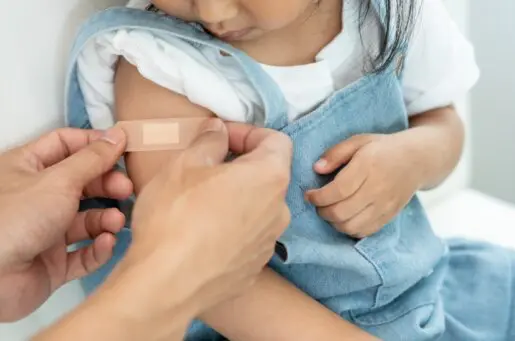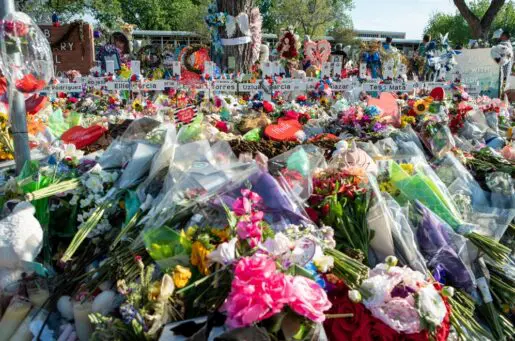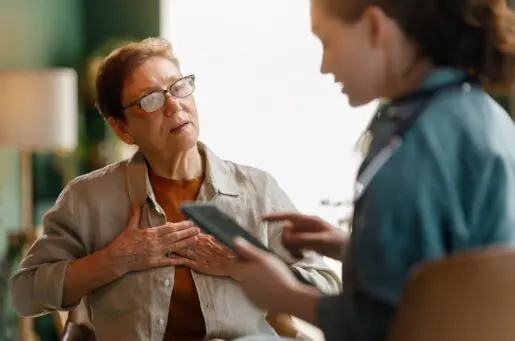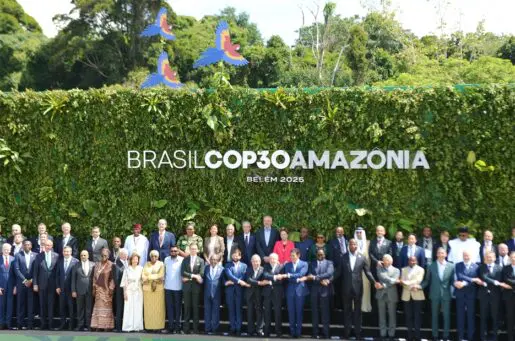Bioethics Forum Essay
Report from Sub-Saharan Africa: “When the Health Fundamentals Are Weak, Covid Will Expose You.”
The cries of millions of people in Sub-Saharan Africa and in low- and middle-income countries elsewhere who are struggling to stay alive because of Covid-19 and the lockdowns call for us to revisit the conceptual framework of the human right to health. This right has been contested as being utopic, unenforceable, philosophically groundless, and simply aspirational rhetoric. Where it has been considered at all, it has often been interpreted as the right to health care, often understood as medical care or even health insurance. But a closer look at international legal documents, including the World Health Organization’s founding document, the Universal Declaration of Human Rights, and the International Covenant on Economic Social and Cultural Rights, shows that medical care is only one, albeit an important, component of the right to health. The other components, such as access to housing, clean water, and hygienic sanitary conditions, have been denied to the poorer citizens of many low- and middle-income countries, but they are crucial to protection against Covid-19.
The neglect brings to mind a famous quote by Ghana’s vice president, Dr. Mahamudu Bawumia. Discussing the rapidly falling value of Ghanaian currency in 2014, he stated, “If the fundamentals are weak, the exchange rate will expose you.” His use of the word expose had two meanings: becoming more vulnerable to external harm and shaming you for neglecting fundamentals. Dr. Bawumia’s statement could be modified to apply to the pandemic: “When the fundamentals of health are weak, Covid-19 will expose you.”
Despite the promises and hopes of many struggles for independence from colonial rule, and of freedom fighters who decried their people’s health deprivations, there have been decades of failures and lost opportunities to implement policies to protect and expand the full right to health. This neglect, combined with the impact of the Covid-19 pandemic, is now taking away the lives and livelihoods of many of the world’s most economically and socially vulnerable human beings.
What is more, many governments of low- and middle-income countries must borrow billions more dollars to cover expenses related to addressing the pandemic, thereby further increasing the already heavy debt burden of these governments. Importantly, since external funding now is only available for or wholly redirected to Covid-19 responses, many African countries are trying to ramp up already inadequate health care systems to managing the expected tide of Covid patients. African governments have also come together to fight protectionism of manufacturing countries to get a share of ventilators and PPEs, build field hospitals, and procure tests and equipment to enhance testing capacities. Meanwhile, other killer diseases like malaria, cholera, tuberculosis, HIV/AIDS, Lassa fever, cerebrospinal meningitis, and typhoid continue to kill, now with minimal resistance. Limited resources and personnel are being channeled to fight Covid-19, leaving other diseases to spread. New health harms are also increasing, such as domestic violence, particularly against women and children. And there will be a significant increase in mental health morbidity.
Although many low- and middle-income countries, specifically those in Sub-Saharan Africa, are dealing with other epidemics, the Covid-19 pandemic is indeed different. The outbreak did not start in a remote village, in some fragile and weak country. It started in a major urban center in a rich country. Furthermore, unlike the 2014 Ebola outbreak in West Africa, the reaction of governments and international organizations to the novel coronavirus was speedy. And it was initially brought to African countries by people who are relatively elite; they could afford and had necessary clearances for international air travel. Let’s remember that the initial global spread of the virus maps clearly onto international flights paths. Unlike people in rural areas, people who have international mobility also have an impactful voice to put pressure on governments to implement policies that they see being implemented in other countries. Thus, many African governments responded quickly. And strict and complete lockdowns seemed plausible because the middle class and upper-class citizens of low- and middle-income countries —and of high income countries—have spacious houses to live in, fridges to preserve food, money for stocking up supplies, internet, and so forth. Unfortunately, for a large part of the population of low- and middle-income countries, none of these lockdown essentials can be assumed.
While infectious disease epidemiological models only recognize bodies and viruses, governments have an obligation to evaluate, translate, and adapt what science recommends. There has been resistance to the global one-size-fits all approach to pandemic control by some African governments, but they have not applied that same concern to their own diverse citizens. Government pandemic responses that are primarily modelled on middle-class citizens are willfully blind to the living conditions of poor people and the potential disproportionate burdens they will face. The poor understand this reality very well. A trotro-minibus-driver in Kumasi, Ghana, when questioned by police for carrying one passenger more than the number prescribed by social distancing rules, shouted in pidgin English, “Hunger virus strong pass coronavirus.” (“The virus of hunger is more lethal than Covid-19.”) In contrast, the middle class and elites of Ghana, becoming alarmed at the number of people not following social distancing rules, have been exhorting online and in op-eds for the government to implement even more stringent lockdown policies.
How would low- and middle-income countries such as Ghana and India have responded to the pandemic if the right to health and its broader conceptualization had been given proper attention over the last six decades? Whatever philosophical and political debates between Communist and liberal democracy superpowers may have undermined the right to health in international law and development agendas, the Covid-19 pandemic compels a renewed commitment of low- and middle-income countries to pursue the ideal of the right to health. And, as we are seeing, even the richest countries could benefit from such a renewed commitment.
As long as the right to health, when considered at all, continues to be conceived narrowly as a claim to some level of medical care, without focusing on other important parts of what is needed to stay or become healthy, the “fundamentals” will remain weak, making all of us in the world vulnerable.
Caesar Atuire is a Ghanaian philosopher and health ethicist at the University of Ghana, Legon, and is a Visiting Fellow at All Souls College at Oxford, Twitter: @atuire. Sridhar Venkatapuram is an associate professor of global health and philosophy at King’s College London, Twitter: @sridhartweet.
45% of The Hastings Center’s work is supported by individual donors like you. Support our work.
